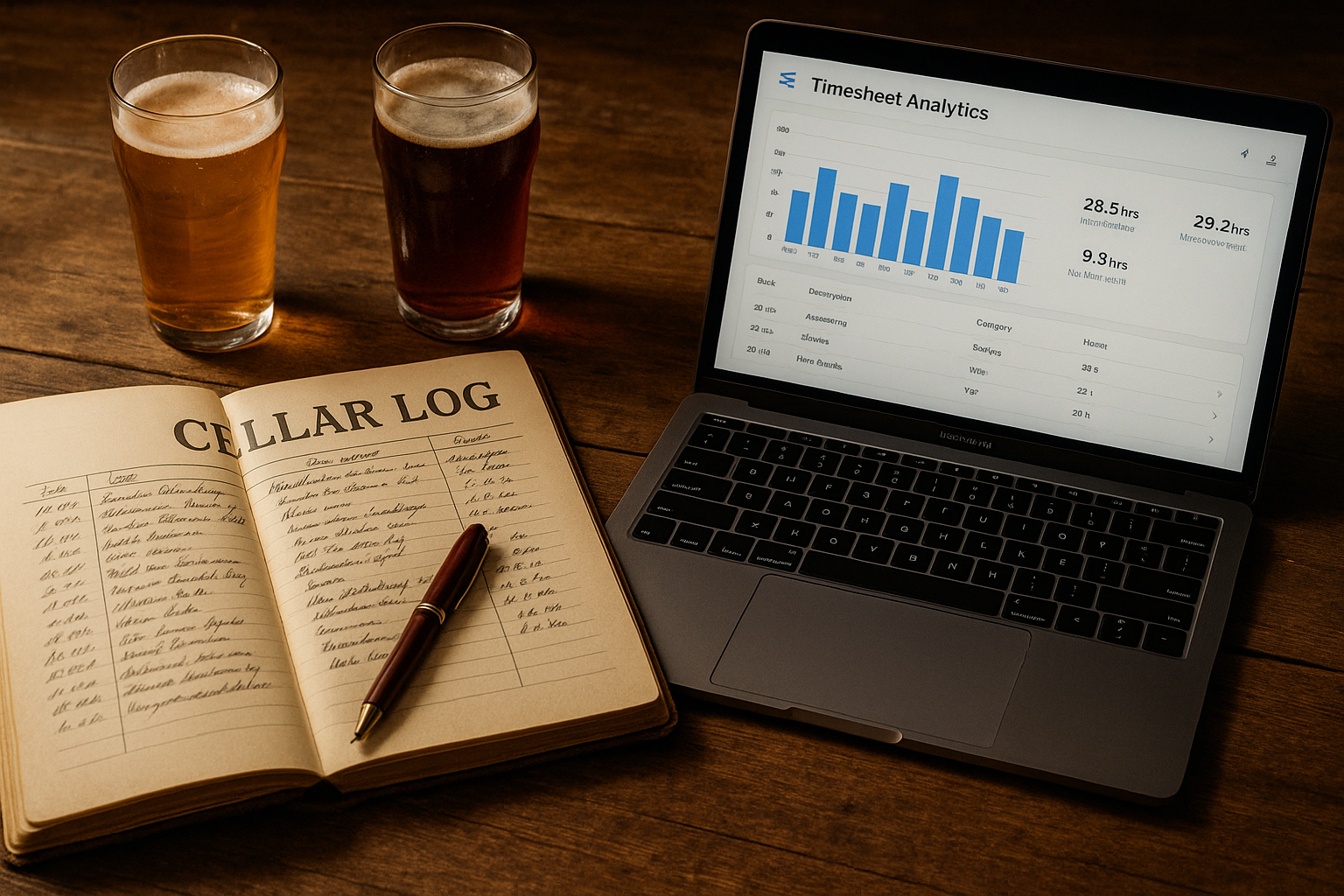Why I Treat Timesheets Like Cellar Logs

Why I Treat Timesheets Like Cellar Logs
I split my week between writing software and running a pub and brewery. The common habit is simple: record the work that matters. In the brewery that means noting brew days, conditioning checks, and when a line was cleaned. In the software shop it means logging the hours spent on a feature or a support request. We do not track every pump pull at the bar, but we do capture the work that keeps the place running.
Most small teams still rely on guesswork. A client assures me a job “takes about a day” and the clock quietly shows it swallowed a day and a half. At the pub, someone assumes the festival set-up can be sorted after lunch and suddenly we’re nudging into the evening rush. Those overruns rarely make it onto paper, so nobody can challenge them. Timesheets are not about surveillance; they are the evidence you need to plan the next week with fewer surprises.
I favour plain language entries. Monday’s log might read “Line clean”, “Invoice export fix”, “Supplier calls”. Nothing elaborate. The point is to spot patterns. Every Friday we skim the list. If the development team spends three sessions wrestling with the same integration, we prioritise a proper fix. If the pub crew logs “Emergency cover” twice in a row, we adjust the rota or tidy the handover. Ten minutes of calm review beats a month of hunches.
Accountability changes the conversation. When people know their notes will be read, they become more deliberate. No one wants to explain away half a day marked “admin”, so the work gets tidied up or delegated properly. That habit saved a consultancy project last year: we could point to the additional hours triggered by a scope change and renegotiate without drama. On the hospitality side, the same discipline told me exactly when to bring in an extra brewer and when to lean on automation instead.
Timeforce exists to keep that routine tolerable. I am not chasing flashy dashboards; I want a reliable ledger I can inspect on a Sunday evening after closing. Capture the important hours, review them regularly, adjust the plan. It is the same rhythm whether you are refining recipes or shipping code. Run that loop and your business starts steering itself on evidence rather than optimistic guesses.